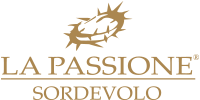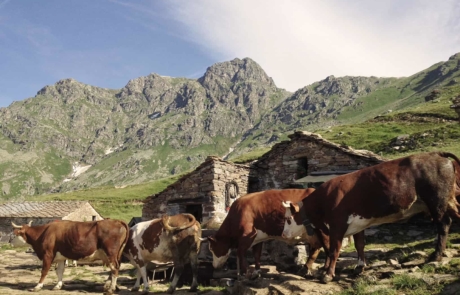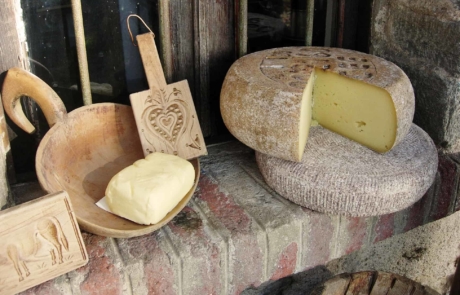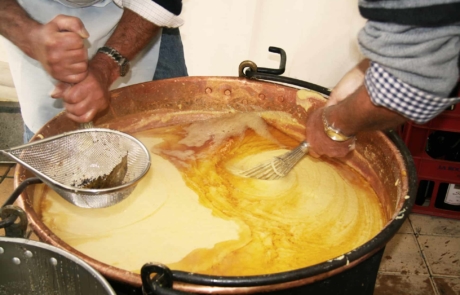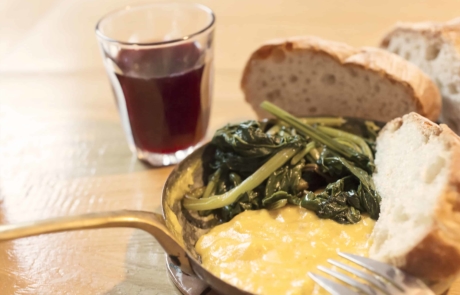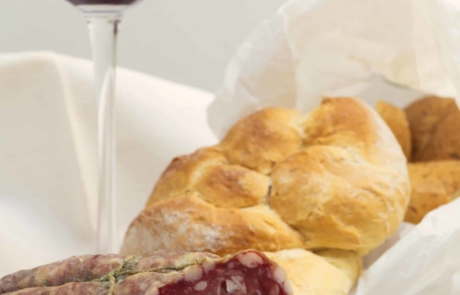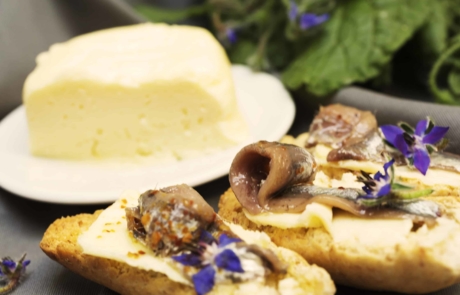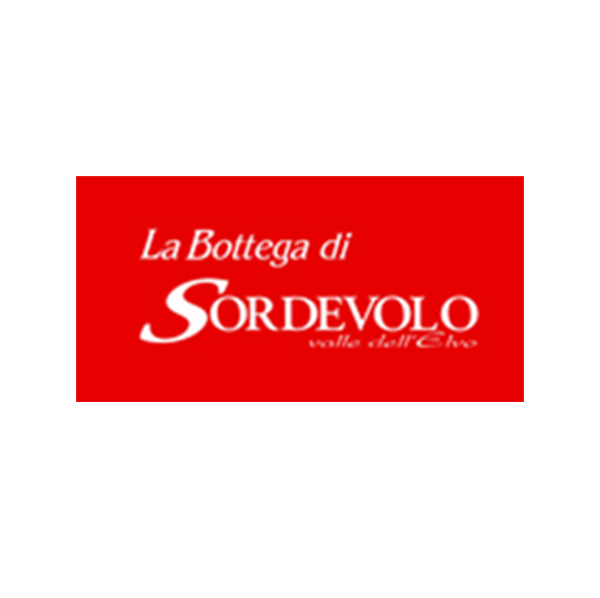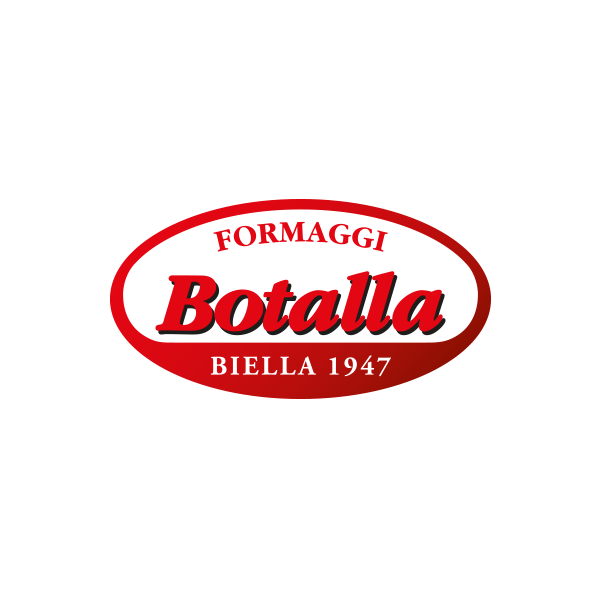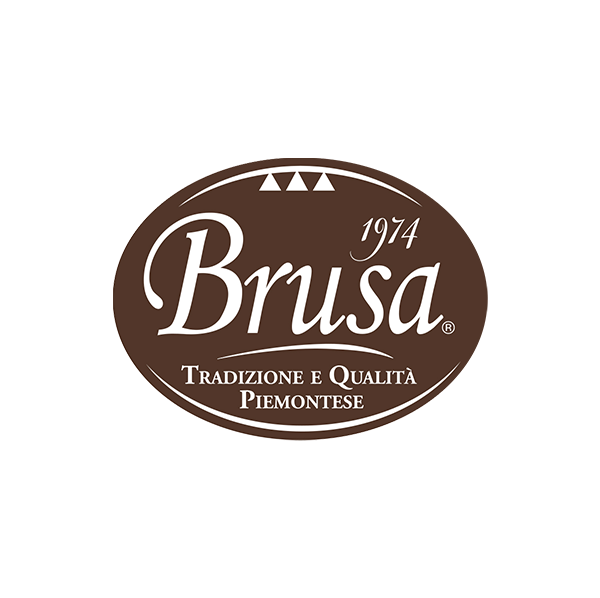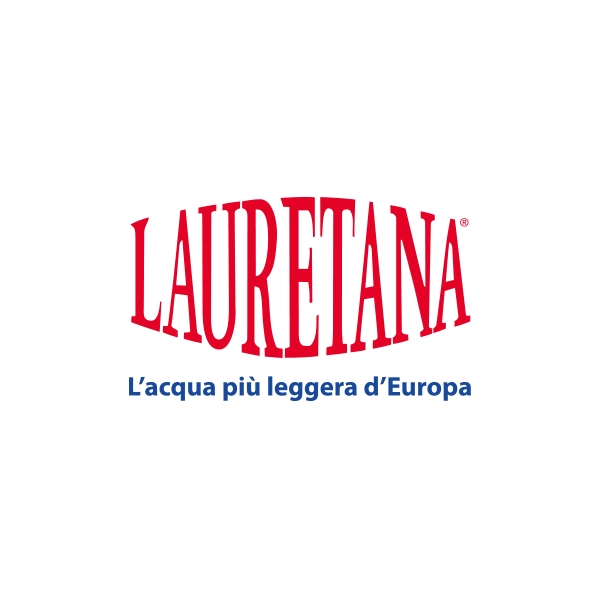Sordevolo Slow Food ® for refined palates
The Valley Elvo economy is still based on dairy farming. The flavour of Sordevolo’s raw, semi-skimmed Toma cheese varies with the flowers and grasses in the pastures. The local raw-milk butter is recognised by Slow Food®.
Farmers used to spend the entire summer on the mountain pastures, eating what was available: cheese or wild herbs with polenta.
Today full-fat Toma, which melts easily, is used in cooking, while semi-skimmed young Toma is usually appreciated on its own with salads, apples, nuts and accompanied by a crisp wine like Erbaluce. The more matured cheeses go well with stronger flavours like chestnut honey and full-bodied red wines such as Bramaterra and Lessona.
Tomino di Sordevolo is a soft, fresh, full-fat, unsalted cheese with aromas of cream. The production method is thousands of years old. You can buy it in the cheese shop, Caseificio Valle Elvo in Occhieppo Superiore (www.caseificiovalleelvo.it).
Other specialties are Bëddu, another small round cheese matured in hay, San Carlin, a starter that is a mix of fresh, creamy tomini and spices, and Sbirro, a cheese made with beer by Caseificio Botalla. The by-products of cheese making are used to produce ricottas.
The Valley also produces many types of sausage and preserved pork. “Paletta”, shoulder ham, is one of the most well-known.
Traditional Piedmont dishes are also common in Sordevolo, such as Bagna cauda, fricandò, capunit.
Polenta concia is made by adding local cheese and nut-brown butter after cooking. The flour is stone-milled locally. A local mill still stone grinds the flour (www.mulinoottino.it).
There are many varieties of chestnut trees growing in the woods in the valley. Dried chestnuts and their flour used to play an important role in the local diet. Bagneri village keeps this tradition going and sells dried chestnuts (www.bagneri.it).
Strangely rice is part of the local tradition. Dried chestnuts were bartered for it and girls worked seasonally in the rice fields south of Biella. Their pay was rice. Riso in cagnone is perhaps the most characteristic rice dish; cheese and nut-brown butter are added to a simple risotto.
The Trappist monks brought potatoes to Sordevolo. The Trappa organisation produces and sells organic potatoes. About 30 varieties of wild herbs are foraged for salads, soups, fritters and frittatas. There are many types of wild mushrooms in the valley, perhaps porcini are the most famous.
The clear waters of the Elvo are well stocked with trout. Traditionally they are cooked in butter and wild thyme. Local game is cooked in winter dishes, usually served with polenta.
The woodland and pastures offer many flowers which attract bees. Many varieties of honey are said to have medicinal properties. Local honey can be bought in the village or in Biella at Bottega di Sordevolo (www.labottegadisordevolo.it). The ancient, fermented honey drink, mead, is still enjoyed locally (www.idromelebiellese.it).
The local water, scarce in minerals, and distributed all around the world by Lauretana, is ideal for brewing beer. As well as Menabrea, the most famous, which also has a beer museum, there are several brewers of various types of craft beers, Microbirrificio Birra Elvo, JEB, Un Terzo, Beer In.

